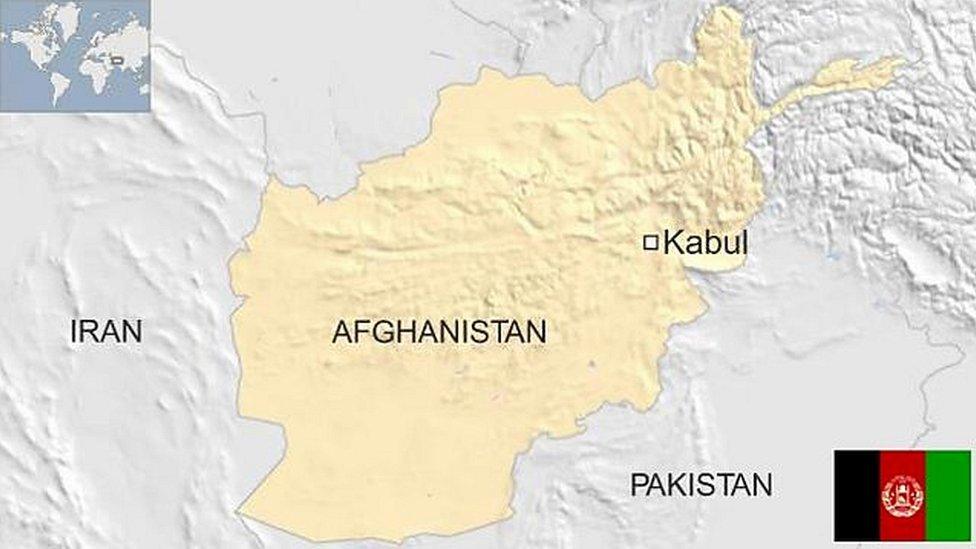Kabul wedding blast: Groom has 'lost hope' after deadly attack
- Published
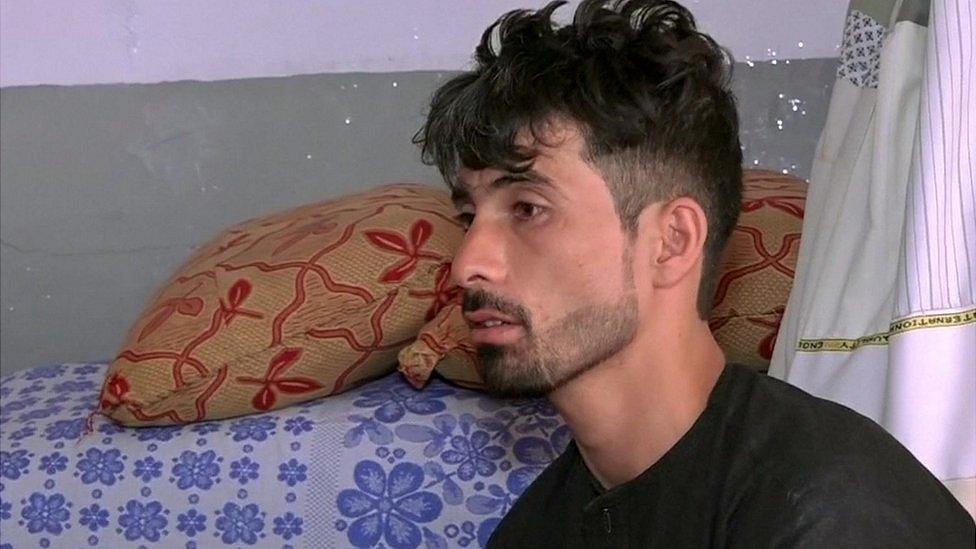
Mirwais Elmi told Tolo News he would "never see happiness in my life again"
The groom whose wedding was targeted by a suicide bomber in the Afghan capital Kabul says he has "lost hope" after the deadly attack.
In a TV interview, Mirwais Elmi said his bride survived but his brother and other relatives were among the 63 people killed in Saturday's attack.
The Islamic State (IS) group has admitted carrying out the bombing, which also wounded more than 180.
President Ashraf Ghani described the attack as "barbaric".
He blamed the Taliban for "providing a platform to terrorists" and postponed major celebrations on Monday marking the centenary of Afghanistan's independence from British influence.
Independence Day celebrations were marred further after 10 co-ordinated blasts left more than 90 people injured in and around Jalalabad city in eastern Afghanistan's Nangarhar province. No group has claimed responsibility for the bombings, which targeted public squares and restaurants, but both IS and the Taliban are active in the area.
Despite the ongoing peace talks to try to end the 18-year US war in Afghanistan, civilians across the country continue to suffer a tremendous toll.
The latest attacks underscore how difficult the path to peace in Afghanistan will be.
IS, who have a presence in eastern and northern Afghanistan and are fighting against both the government and US-led international forces, are not part of the peace talks that have been held in Qatar.
The Taliban, who are negotiating directly with the US government, continue to carry out deadly attacks around the country and have thus far refused to meet for official talks with the Afghan government.
What happened on Saturday?
An IS statement said that one of its fighters blew himself up at a "large gathering" while others "detonated a parked explosives-laden vehicle" when emergency services arrived.
The attack took place in a district populated mainly by Shia Muslims.
The floor of the wedding hall was covered in blood after the explosion
Sunni Muslim militants, including the Taliban and IS, have repeatedly targeted Shia Hazara minorities in Afghanistan and Pakistan.
In the interview with Tolo News, bridegroom Mirwais Elmi recalled greeting smiling guests in the packed wedding hall only to see their bodies carried out hours later.
"My family, my bride are in shock, they cannot even speak. My bride keeps fainting," he said. "I've lost hope. I lost my brother, I lost my friends, I lost my relatives. I will never see happiness in my life again.
"I can't go to the funerals, I feel very weak ... I know that this won't be the last suffering for Afghans, the suffering will continue," he added.
The bride's father told Afghan media that 14 members of his family had died in the attack.
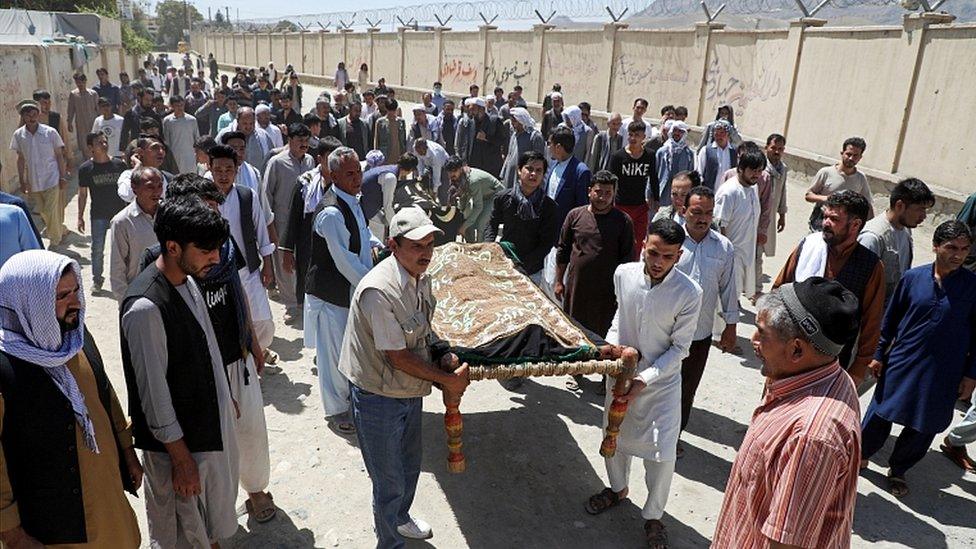
Funerals have been taking place for the victims of the blast
Speaking from a hospital bed, wedding guest Munir Ahmad, 23, said his cousin was among the dead.
"The wedding guests were dancing and celebrating when the blast happened," he told AFP news agency.
"Following the explosion, there was total chaos. Everyone was screaming and crying for their loved ones."
Afghan weddings often take place in large halls where men are segregated from the women and children.
What reaction has there been?
Writing on Twitter, President Ghani said he had called a security meeting to "review and prevent such security lapses."
Allow X content?
This article contains content provided by X. We ask for your permission before anything is loaded, as they may be using cookies and other technologies. You may want to read X’s cookie policy, external and privacy policy, external before accepting. To view this content choose ‘accept and continue’.

Afghanistan's chief executive, Abdullah Abdullah, described it as a "crime against humanity" and the US ambassador to Afghanistan, John Bass, called it an act of "extreme depravity".
A Taliban spokesman said the group "strongly condemned" the attack.
"There is no justification for such deliberate and brutal killings and targeting of women and children," Zabiullah Mujaheed said in a text message to the media.

Caught in the middle
Analysis by Dawood Azami, BBC World Service
The conflict in Afghanistan is now the biggest war in the world.
The US - and Afghan troops backing them - dropped more bombs in 2018 than at any other time since 2001.
The Taliban, on the other hand, have intensified their attacks in an effort to gain more territory and get the upper hand in the peace talks.
The franchise of the Islamic State (IS) group in Afghanistan, though much smaller and weaker than the Taliban, is increasingly active as it aims to prove its relevance. To do so, it has been mainly targeting civilians.
Given ideological and political differences, the two militant groups have also been battling each other.
Civilians are caught in the middle and their casualties are going up.

How are Afghan peace talks progressing?
Taliban and US representatives have been holding talks in Qatar's capital, Doha, and both sides have reported progress.
On Sunday, US President Donald Trump told reporters in New Jersey that the negotiations were going well.
"We're having very good discussions with the Taliban. We're having very good discussions with the Afghan government," he said.
The US has about 14,000 troops in Afghanistan and is part of a Nato mission there. Since the start of his presidency Mr Trump has said he wants to pull the US troops out.
The deal would include a phased US troop pullout in exchange for Taliban guarantees that Afghanistan will not be used by extremist groups to attack US targets.
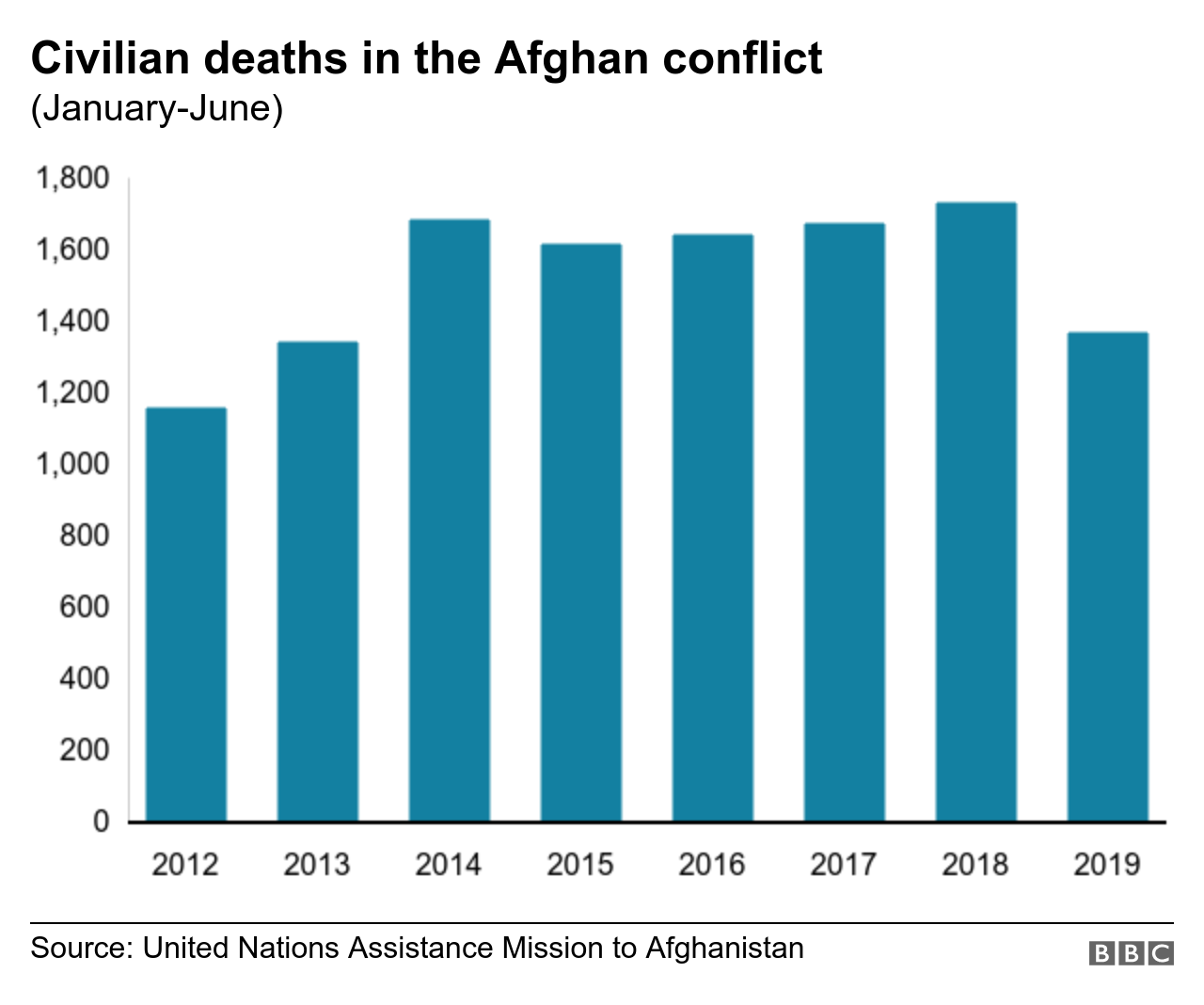

The Taliban would also begin negotiations with an Afghan delegation on a framework for peace including an eventual ceasefire. The militants have been refusing to negotiate with the Afghan government until a timetable for the US withdrawal is agreed upon.
The Taliban now control more territory than at any point since they were forced from power in 2001.
- Published14 July 2019
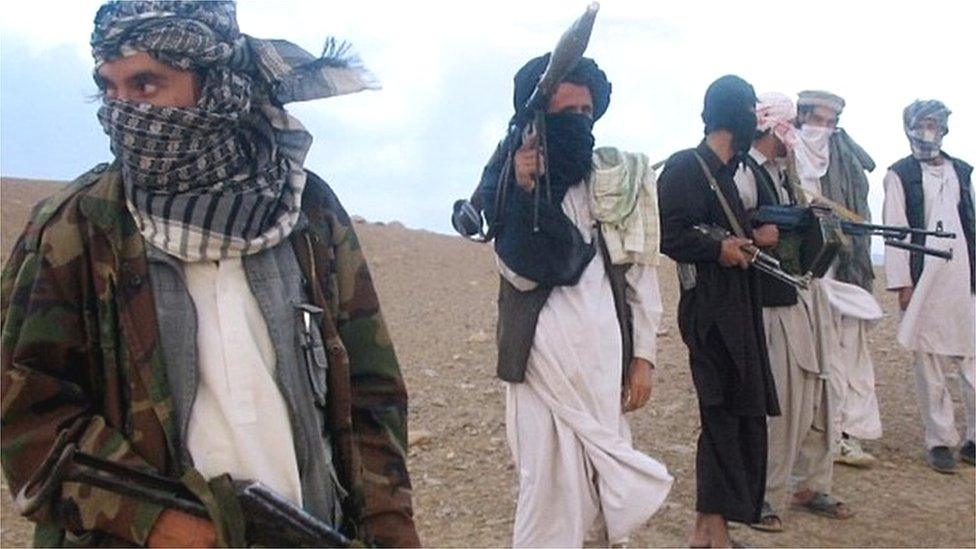
- Published7 August 2019
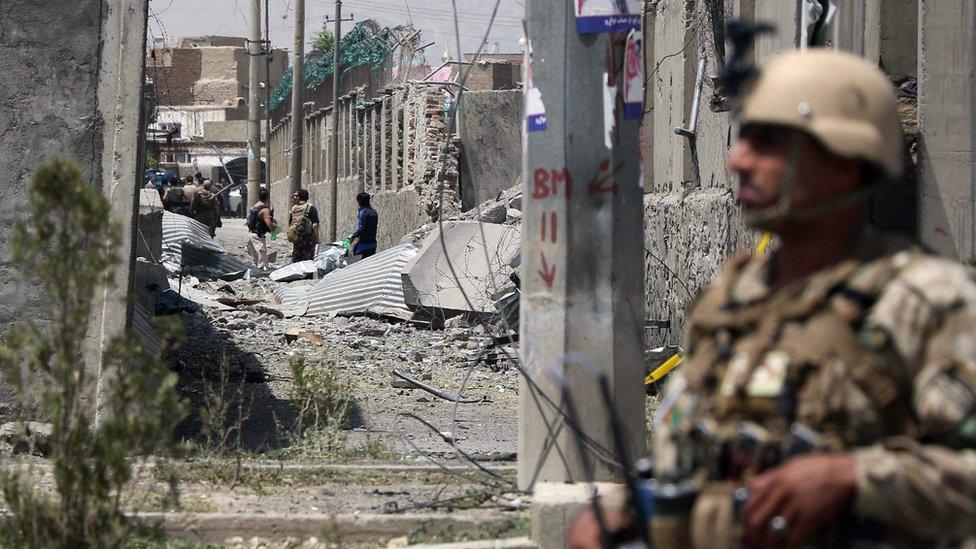
- Published10 March
